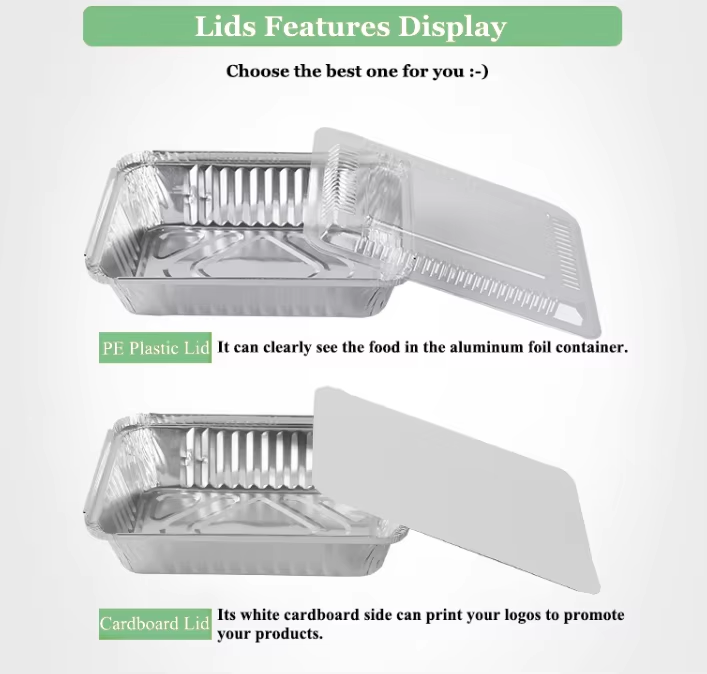Aluminum foil containers, also known as aluminum foil pans or trays, are a versatile and commonly used type of disposable cookware. These containers come in a variety of sizes, shapes, and depths to suit different culinary needs. Here's a detailed introduction to the larger-size aluminum foil containers:
-
Size and Dimensions:
- The larger size aluminum foil containers typically range from 8 inches to 13 inches in width and length.
- The depth of these containers can vary, with common options being 2 inches, 3 inches, or 4 inches.
- These larger sizes are suitable for tasks such as baking casseroles, roasting meats and vegetables, or transporting and serving larger portions of food.
-
Material and Construction:
- Aluminum foil containers are made from thin, yet durable aluminum sheets.
- The aluminum material provides good heat conductivity, allowing for even heating and cooking.
- The containers are usually made with a thicker, reinforced rim to provide additional strength and stability.
-
Uses and Applications:
- Baking and Roasting: The larger aluminum foil containers are ideal for baking dishes, roasting meats, and preparing casseroles in the oven.
- Food Transportation and Catering: These containers are commonly used for transporting and serving larger portions of food, such as at catered events, potlucks, or for family gatherings.
- Meal Preparation and Freezing: The containers can be used for preparing and freezing large batches of meals, making them convenient for meal planning and storage.
- Disposable and Recyclable: After use, the aluminum foil containers can be easily discarded or recycled, making them a practical choice for temporary or one-time use.
-
Advantages:
- Convenience: Aluminum foil containers are disposable, eliminating the need for extensive cleanup.
- Versatility: They can be used for a wide range of cooking and serving tasks, from baking to food transportation.
- Affordability: Larger size aluminum foil containers are generally inexpensive, making them a cost-effective option.
- Durability: The reinforced construction of these containers helps them maintain their shape and integrity during use.
-
Considerations:
- Oven-Safe Limits: It's important to check the specific oven-safe temperature limits for the particular aluminum foil containers being used, as some may have lower limits than others.
- Potential Leaching: While aluminum is generally considered safe for food contact, there are ongoing discussions about the potential for aluminum leaching into acidic foods. It's recommended to follow the manufacturer's guidelines for proper use.
Overall, the larger size aluminum foil containers offer a practical and versatile solution for a wide range of cooking, baking, and food transportation needs, making them a popular choice in both household and commercial settings.



